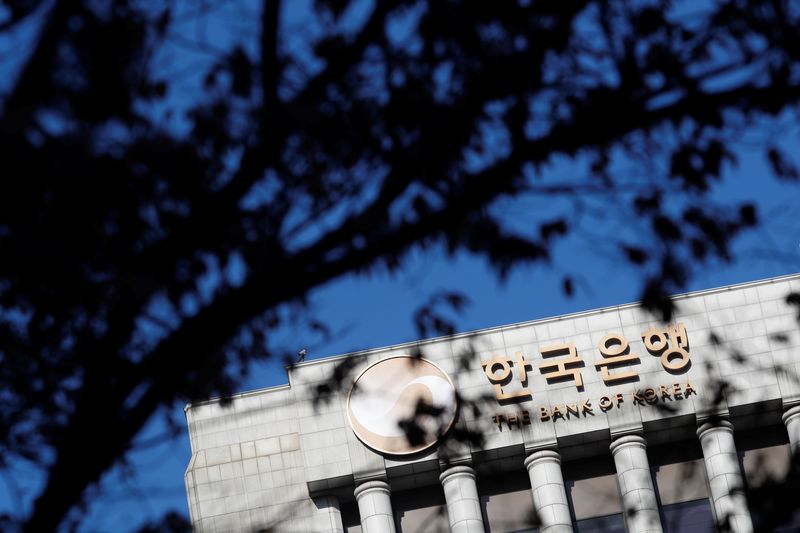By Anant Chandak
BENGALURU (Reuters) - The Bank of Korea will leave its key policy rate unchanged at 3.50% for a fifth consecutive meeting on Thursday and hold it steady for the rest of this year as inflation continues to ease and household debt remains high, a Reuters poll found.
With inflation easing to 2.3% in July, the lowest in over two years and close to the BOK's 2.0% target, financial markets are also indicating a tightening cycle that took rates up 300 basis points in 17 months is over.
Despite the central bank's expectation inflation will rise in coming months, slowing economic growth and high household debt will likely deter the BOK from further hikes, instead opting for a hawkish stance to deter markets from pricing in rate cuts.
All 43 economists in the Aug. 14-21 Reuters poll expected no change to the 3.50% base rate at the Aug. 24 meeting.
"After the last hike in January, the base rate is expected to remain unchanged at the current level until the end of this year ... As the consumer price inflation rate has entered the 2% range, the room to respond to inflation is gradually weakening," said Kong Dong-rak, economist at Daishin Securities.
"However, if concerns about a slowdown in economic indicators grow, expectations for a base rate cut will continue to rise, especially in the financial market. But it will only be possible in 2024."
Among economists who had rate forecasts until end-2023, over three-quarters, 31 of 40, expected rates to remain unchanged at 3.50% until then, while the rest predicted the base rate to be 3.25% or lower.
Like many of its Asian peers also probably done with their policy tightening cycles, the BOK is not expected to respond to rising inflationary risks or to slower economic growth following a 25.1% fall in exports to China last month.
"Although the Bank of Korea has left open the possibility of further rate hikes, we believe that actual hikes are unlikely. Excluding external factors, internal sources of interest rate hikes are limited," said Paik Yoon-min, economist at Kyobo Securities.
"It is difficult to preemptively respond to either policy, but if inflation does not deviate significantly from the BOK's projected path, demand for easing monetary tightening will grow amid growing downward pressure on the economy and financial instability."

A strong majority of economists, 26 of 34, forecast at least one 25 basis point rate cut to 3.25% in the first quarter of next year, when other central banks in the region are also expected to ease policy. [ID/INT][PH/INT]
Median forecasts showed the BOK would gradually reduce the base rate next year, to 3.00% in the second quarter and then to 2.75% and 2.50% in the third and fourth quarters.